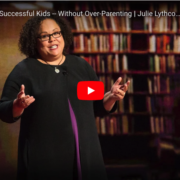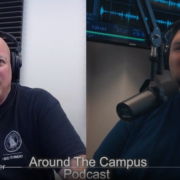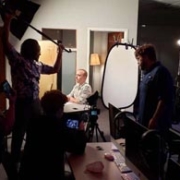Podcasting, the New Titan of Digital Media
The concept of podcasting was originally conceived by the former MTV video jockey Adam Curry and software developer Dave Winer. Podcasting, originally called iPodder, was a software that enabled users to download internet radio shows to Mp3 devices like iPods. The term “podcasting” came from journalist Ben Hammersly who was attempting to combine the concepts of the software like blogging, independent media, amatuer radio into one term. It’s credibility was in its infancy. In other words, non existent. That was until a year later when larger companies started to recognize it’s potential. Apple was one of the first to pick up the software, allowing users to download podcasts on the newest version of iTunes.
15 years later, podcasting has become one of the largest, most profitable, and popular digital platforms around the world. The New York Times podcast pulled $10 million in profits in 2018, Joe Rogan signed an exclusive contract with Spotify for $100 million this year, and top Podcasts make upwards of $1 million in ad revenue and sponsorship deals.
Podcasting owes a large percentage of its popularity to it’s freedom. Terrestrial radio stations are regulated by the FCC, which has tight restrictions on the type of content that can be aired. Podcasting is only restricted to the platform that the podcasters advertise on. Sites like Libsyn, Spotify, Podbean, Squarespace, Apple Podcasts and dozens more allow users the freedom to post (almost) anything they want for content. This freedom attracted thousands of hobbyists to the platform, but the professionals in the industry had different ambitions.
With the popularity of anything in media like podcasting, voice overs, videography, journalism, and the freedom to post content anyone with an internet connection can see, there is bound to be saturation of the market. Podcasting has brought forth a show for every person’s needs, whether it be true crime, sports, movies, music, and original content that caters to a very small, but specific target audience. The industry continues to grow, with predictions that the business could make over $1 billion in revenue by 2021.
With the growing popularity of the art form, comes massive job opportunities. Businesses like Spotify, Pandora, Sirius XM and iHeartMedia have even opened up departments entirely dedicated to podcasting. These jobs don’t just include the hosting itself, it also includes developing and updating the technology like cameras and microphones, producing the shows, managing the department employees, writing new content, interning, and more.
Not many professionals in the media industry expected it, but podcasting has solidified itself as one of the most profitable forms of original digital content in history. It continues to grow and thrive, and with a global pandemic still raging on, many individuals are turning to the industry as a money making opportunity, new hobby, or unique way of releasing their content.











 Request Info >>
Request Info >>